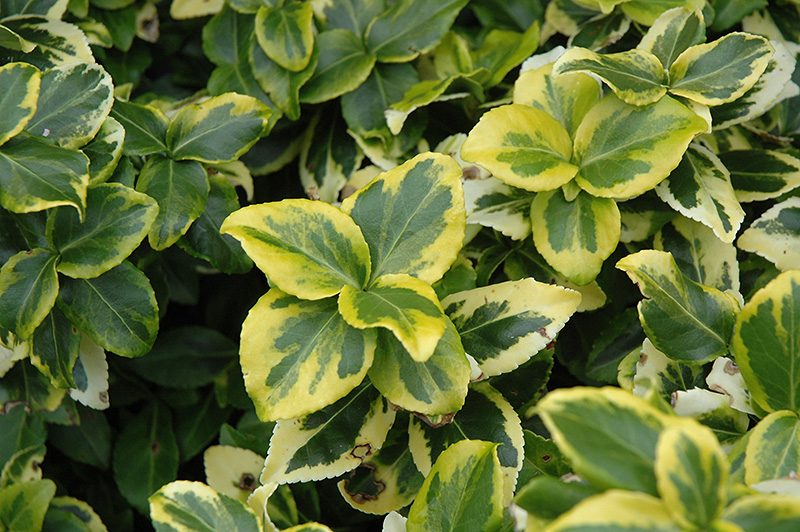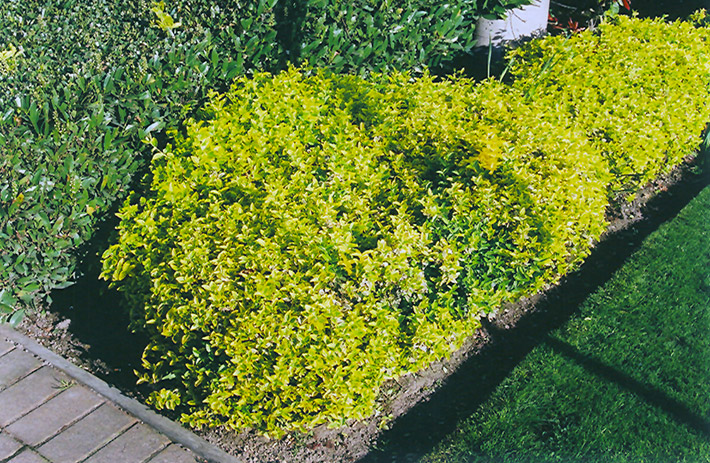>> Home
Gold Prince Wintercreeper
Euonymus fortunei 'Gold Prince'
Height: 24 inches
Spread: 12 feet
Sunlight:
![]()
![]()
![]()
Hardiness Zone: 4
Other Names: Wintercreeper Euonymus
Description:
A vigorous and hardy vine or mounded shrub featuring eye-catching gold variegated evergreen leaves in spring that fade to dark green; a versatile and adaptable color accent for almost any screening application
Ornamental Features
Gold Prince Wintercreeper has attractive gold-variegated green foliage which emerges gold in spring on a plant with a spreading habit of growth. The glossy oval leaves are highly ornamental and remain green throughout the winter. It produces pink capsules from mid to late fall.
Landscape Attributes
Gold Prince Wintercreeper is a multi-stemmed evergreen shrub with a ground-hugging habit of growth. Its relatively fine texture sets it apart from other landscape plants with less refined foliage.
This shrub will require occasional maintenance and upkeep, and can be pruned at anytime. Gardeners should be aware of the following characteristic(s) that may warrant special consideration;
- Insects
Gold Prince Wintercreeper is recommended for the following landscape applications;
- Mass Planting
- Hedges/Screening
- General Garden Use
- Groundcover
Planting & Growing
Gold Prince Wintercreeper will grow to be about 24 inches tall at maturity, with a spread of 12 feet. It tends to fill out right to the ground and therefore doesn't necessarily require facer plants in front. It grows at a fast rate, and under ideal conditions can be expected to live for approximately 30 years.
This shrub performs well in both full sun and full shade. It is very adaptable to both dry and moist locations, and should do just fine under typical garden conditions. This plant should not require much in the way of fertilizing once established, although it may appreciate a shot of general-purpose fertilizer from time to time early in the growing season. It is not particular as to soil type or pH. It is highly tolerant of urban pollution and will even thrive in inner city environments, and will benefit from being planted in a relatively sheltered location. This is a selected variety of a species not originally from North America.

